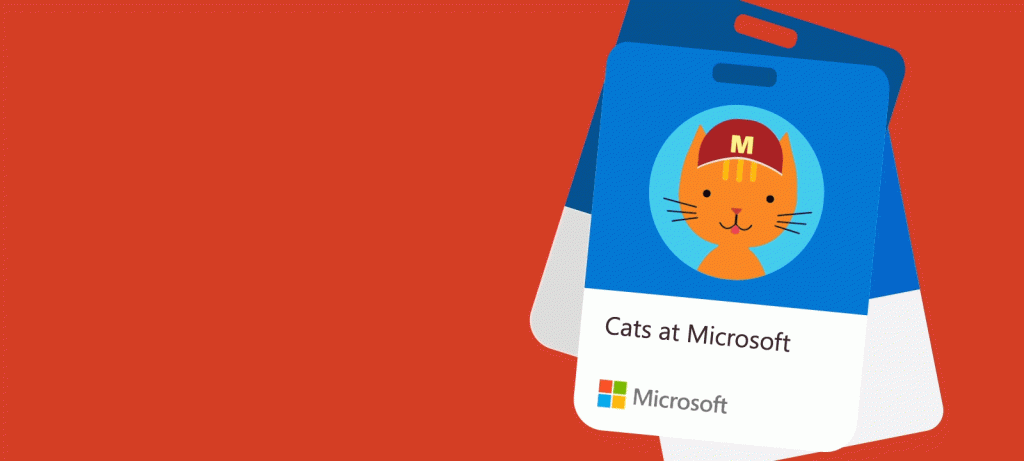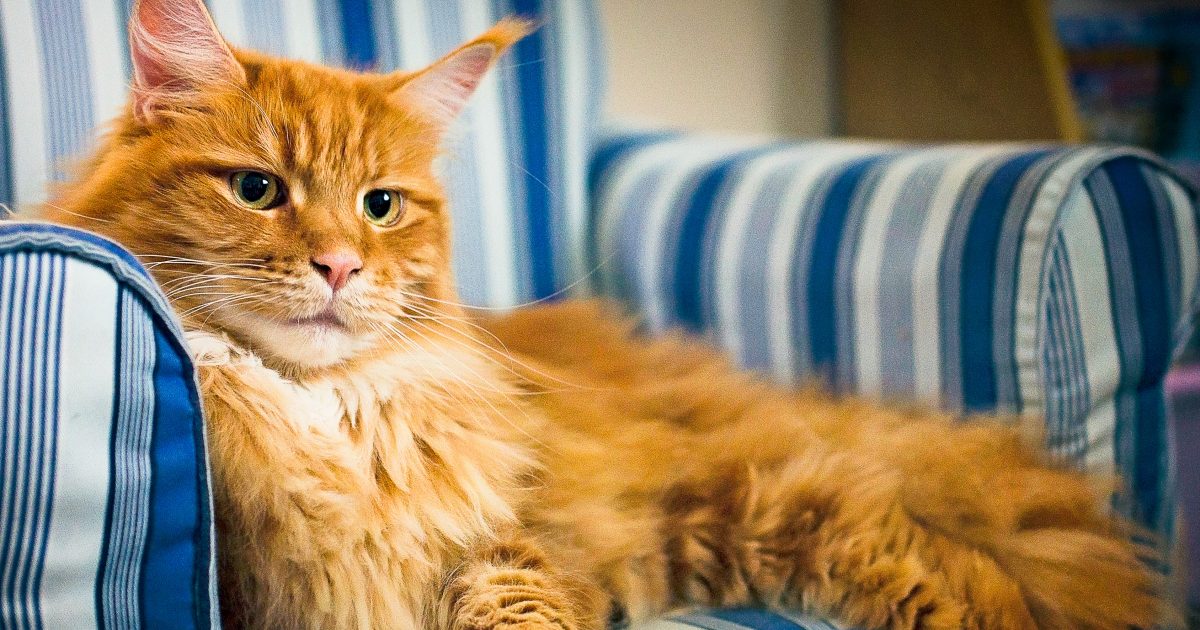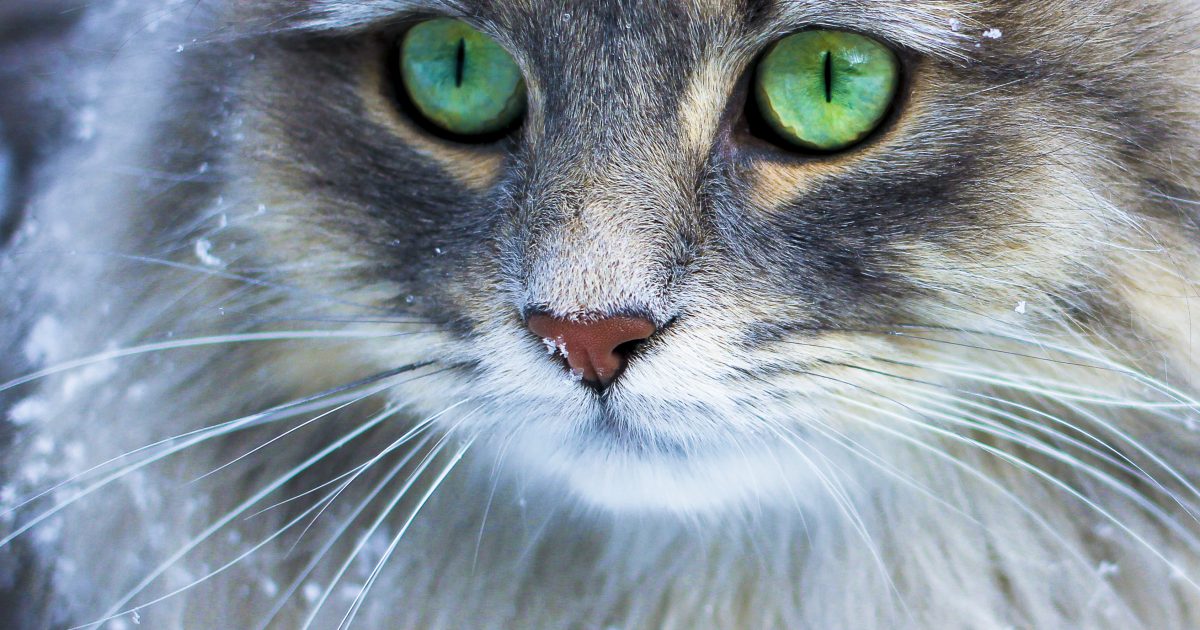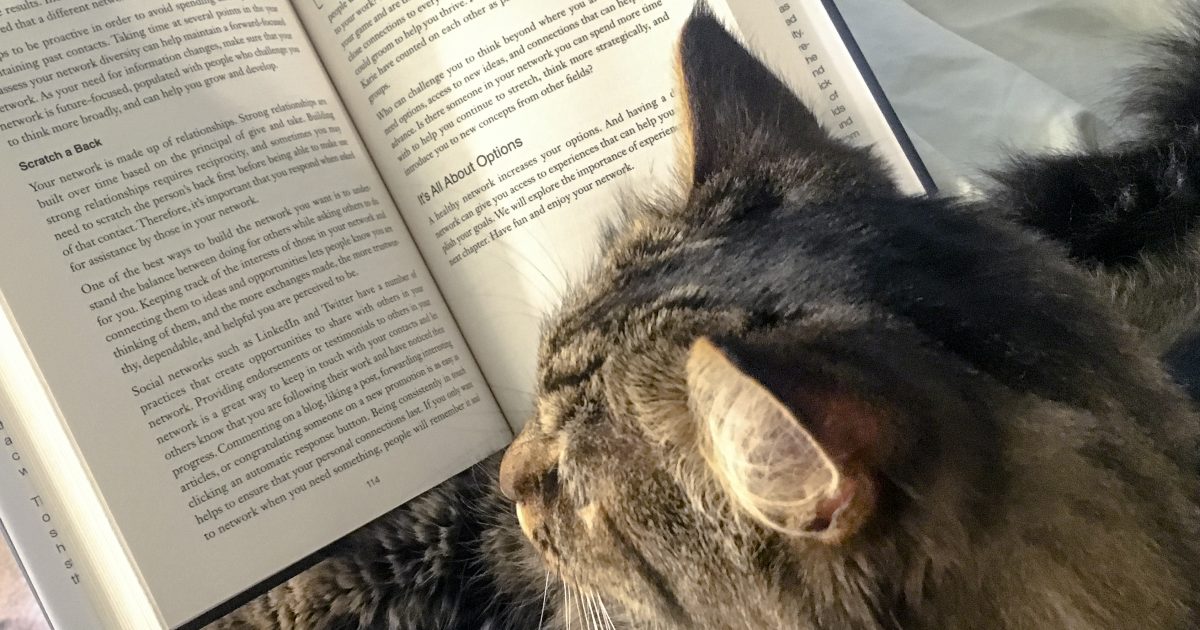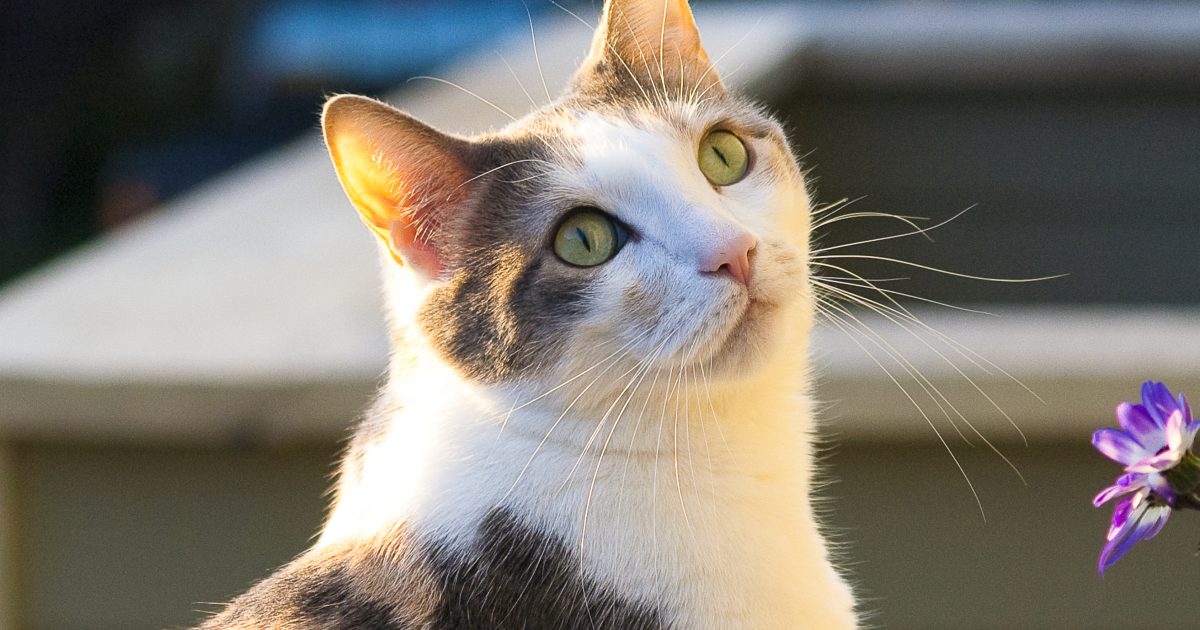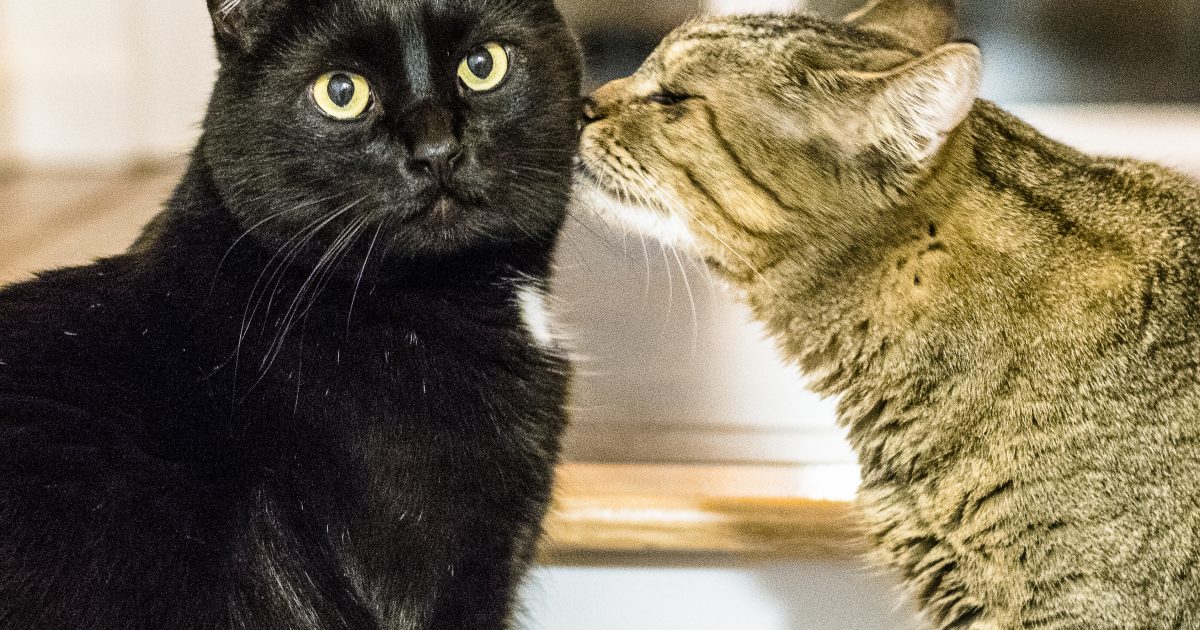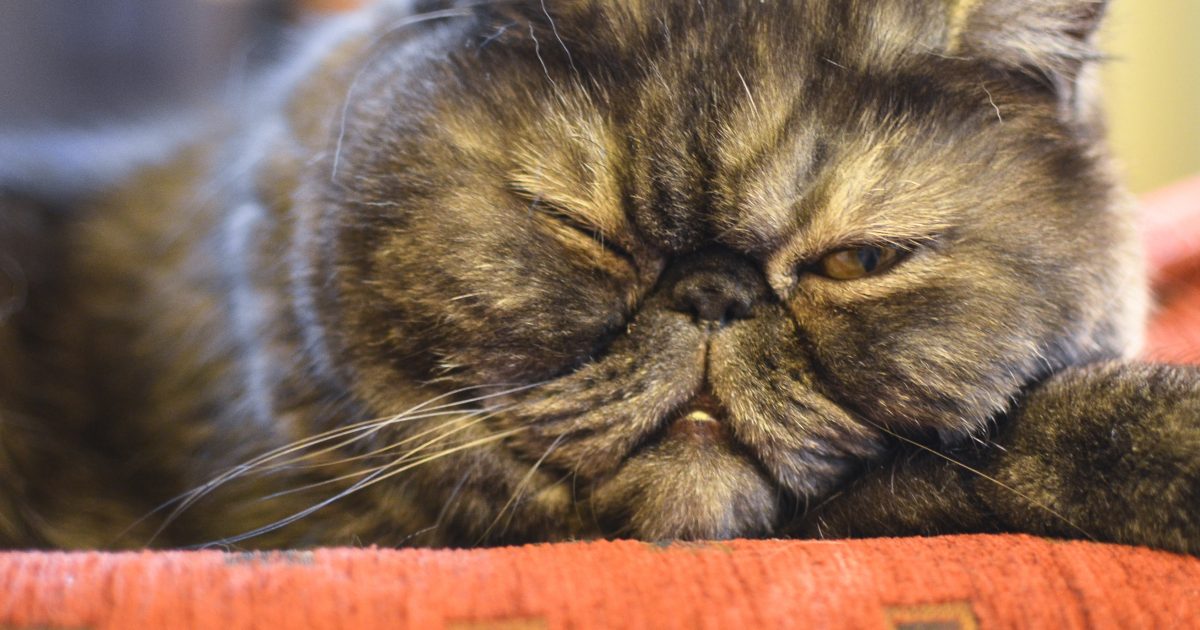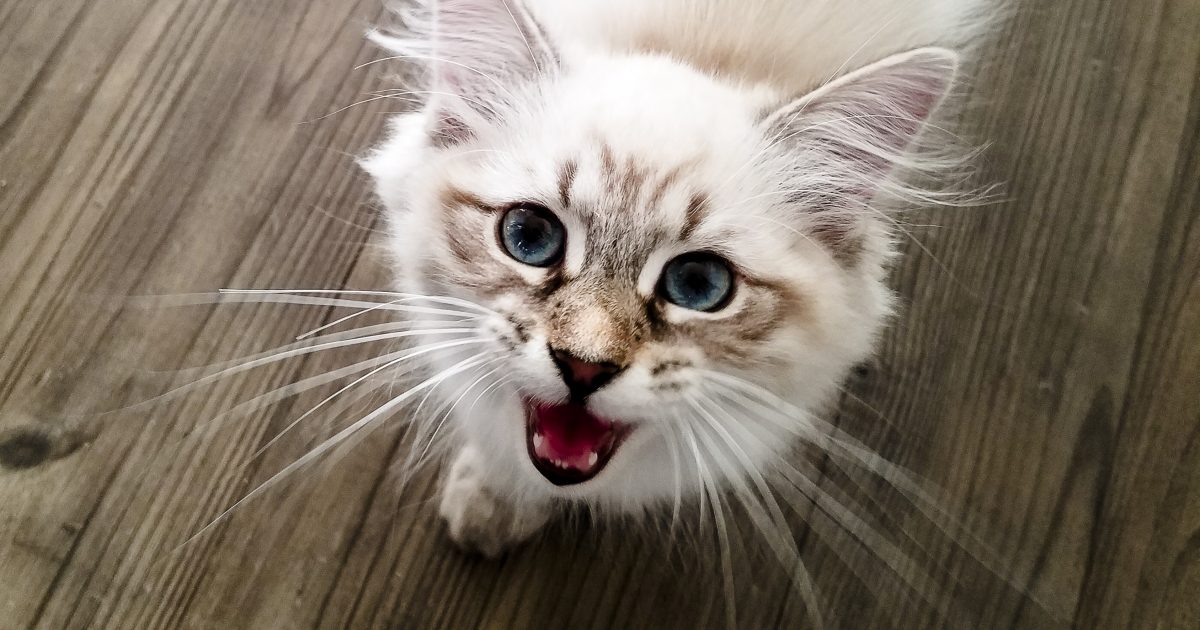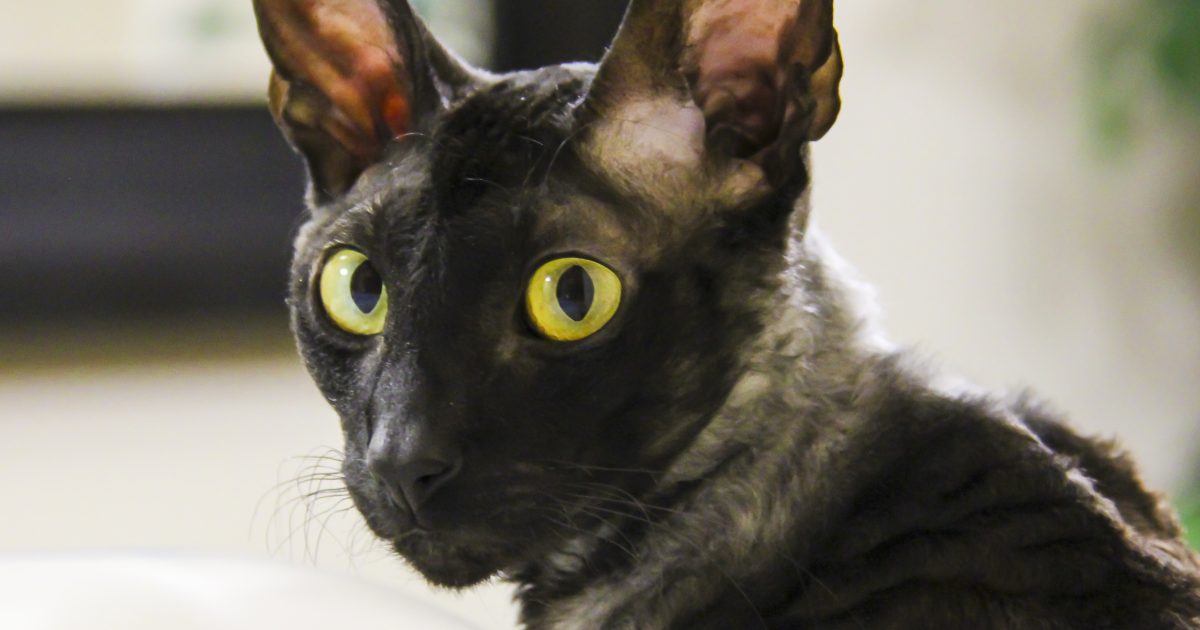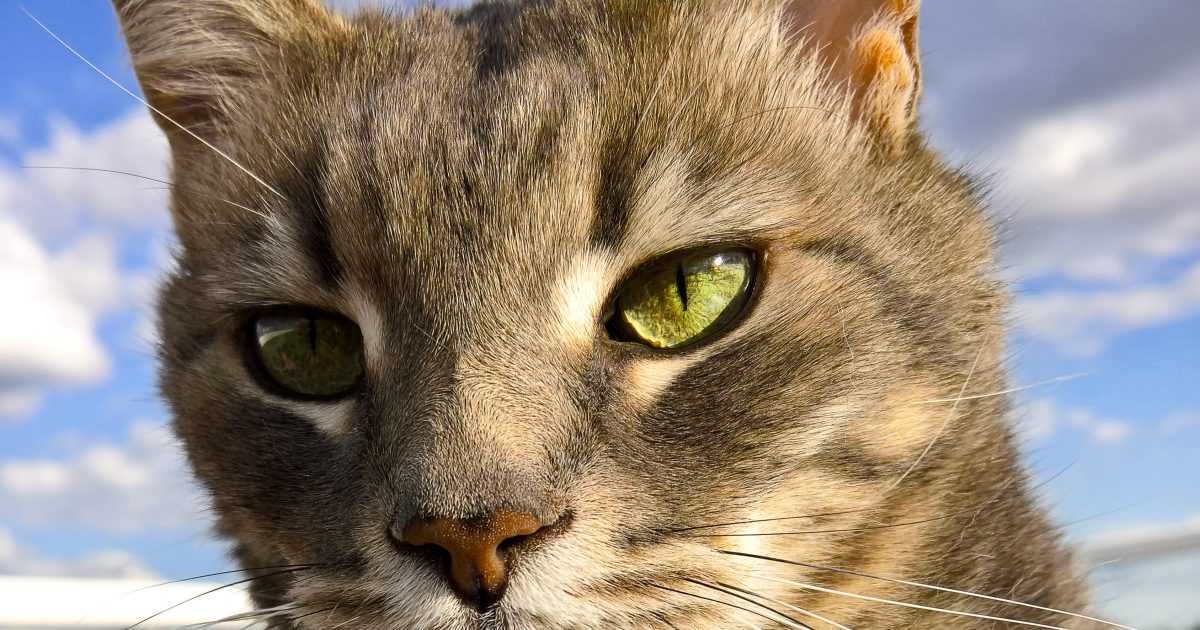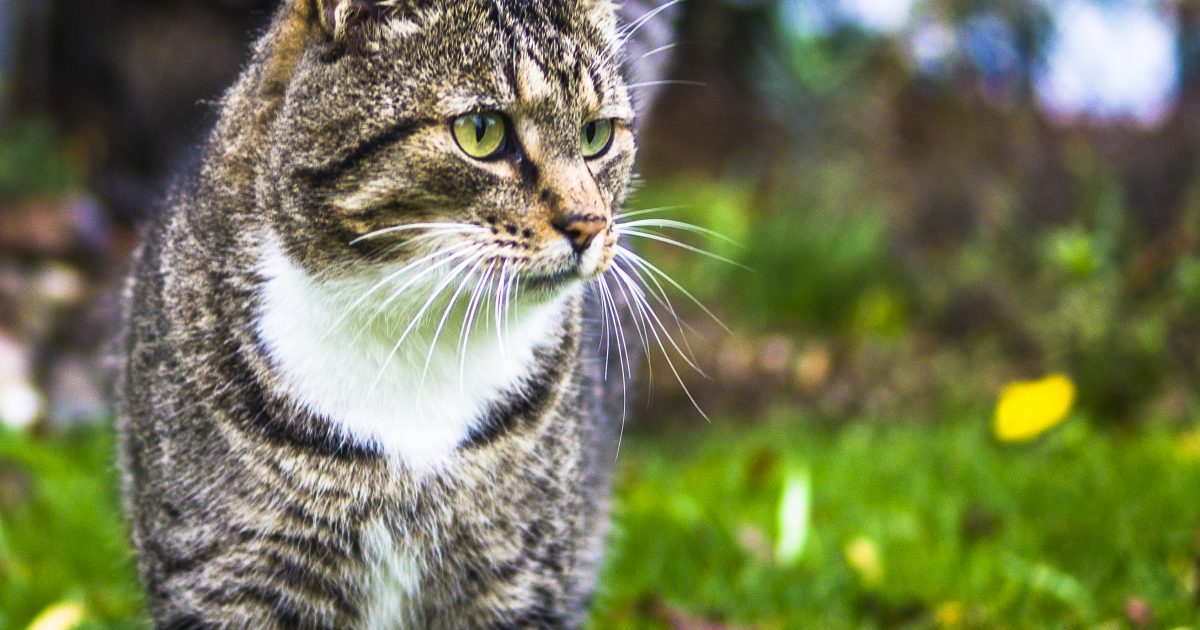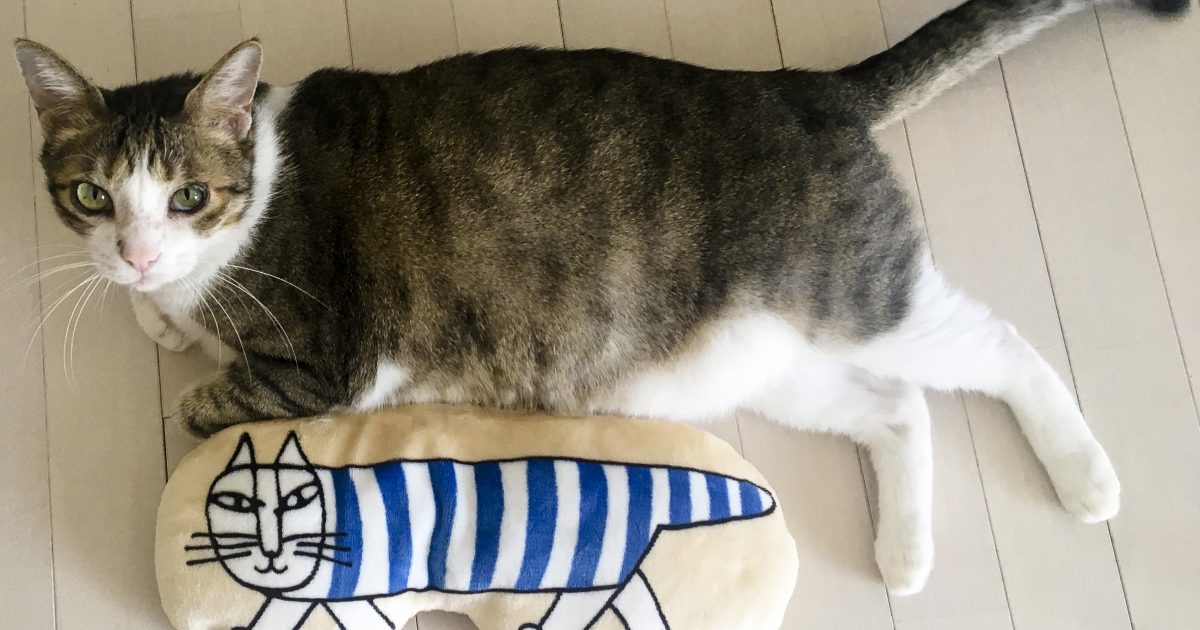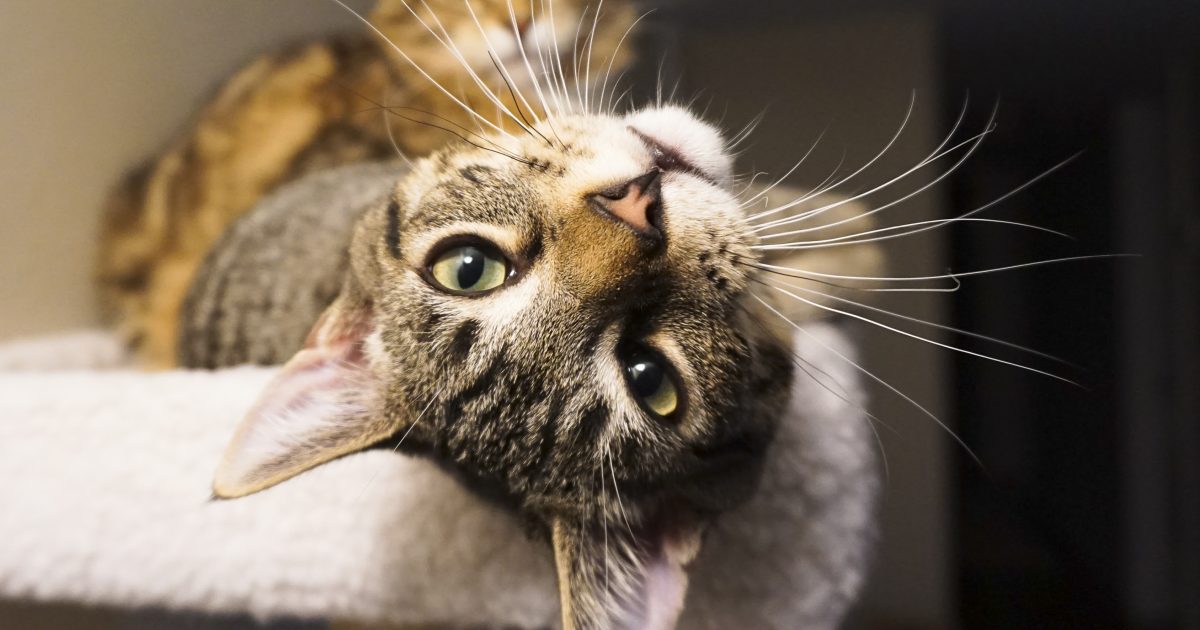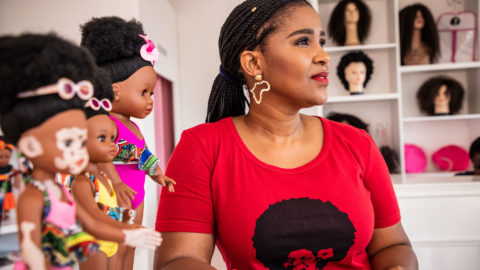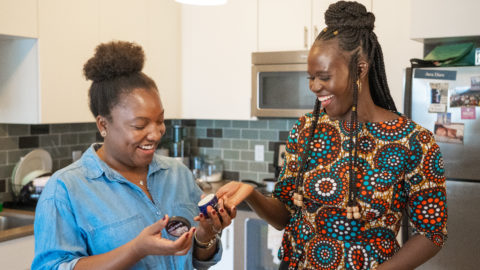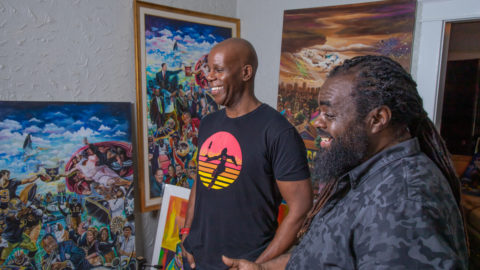Meow you doing? How a group of cat-loving employees built a tight-knit place to belong and found a larger purrpose
Cats at Microsoft, a feline fan club, has welcomed hundreds of employees and alumni into its clan over the past decade
It’s happened to Karen Easterbrook a few times already, and it’s bound to sneak up on her again. She’s in a work meeting with folks from different teams, and people are introducing themselves. When it’s her turn, she says her name and inevitably someone blurts out, “You’re the cat woman!”
“Every time, I have to live it down,” Easterbrook said.
If it’s not being recognized in a meeting, it’s a cat-and-mouse game in a hallway.
“We joke that’s how we recognize each other: you have cat hair on your back,” said Easterbrook, who works on post-quantum cryptography in the company’s Artificial Intelligence and Research group. She recently adopted a 12-year-old tabby with an unmistakable, shed-happy orange coat. Cat hair on clothing “is our group sign. We nod and know, you’re part of the family.”
That family is Cats at Microsoft, a feline fan club that over the past decade has welcomed hundreds of employees and alumni into its clan. Not only has the group helped employees navigate the joys and heartbreaks of pet ownership, it has also facilitated invaluable career connections and led to an impactful community rescue project none could have imagined when they first came hunting for advice about scratching posts and spaying.
In a global workplace so big and fast moving, it can sometimes be challenging to find a clutch of one’s own—a cozy spot to foster long-term relationships, seek advice, and explore common interests. Cats of Microsoft helps unravel that ball of yarn.
The story of Cats at Microsoft is a story of cool cats and new cats, introverts and extroverts, engineers and program managers and administrative assistants. It’s a story of the playful and the shy and the fiercely independent all coming together over cat memes, carefully composed feline haikus, and Friday emails showing off the world’s most purrfect pet.
It’s a clawsome story that shows how anything is pawssible when we connect over passions and make space for the things we care about. A story—no, a tail—that proves that cats always finish first.
Better than catnip
It all started a decade ago, when Susan Bunch’s cat Peter broke his leg. She went to an emergency vet who told her it would be $4,000 for surgery. “I had only been at Microsoft for a few years, I had young kids, tons of restrictions and responsibilities—I couldn’t afford it. The vet said, ‘if you don’t have the money, we’ll have to put your cat to sleep.'”
Bunch was heartbroken. She put her cat to sleep.
“Then my own vet came back and asked me why we hadn’t just amputated. I was like, what? I wanted to talk about it with someone, but it started to feel silly to discuss this in the women’s employee group I was a part of at the time. I noticed, though, that people were answering the questions I had posted so I asked, do you want to have a cat group?”
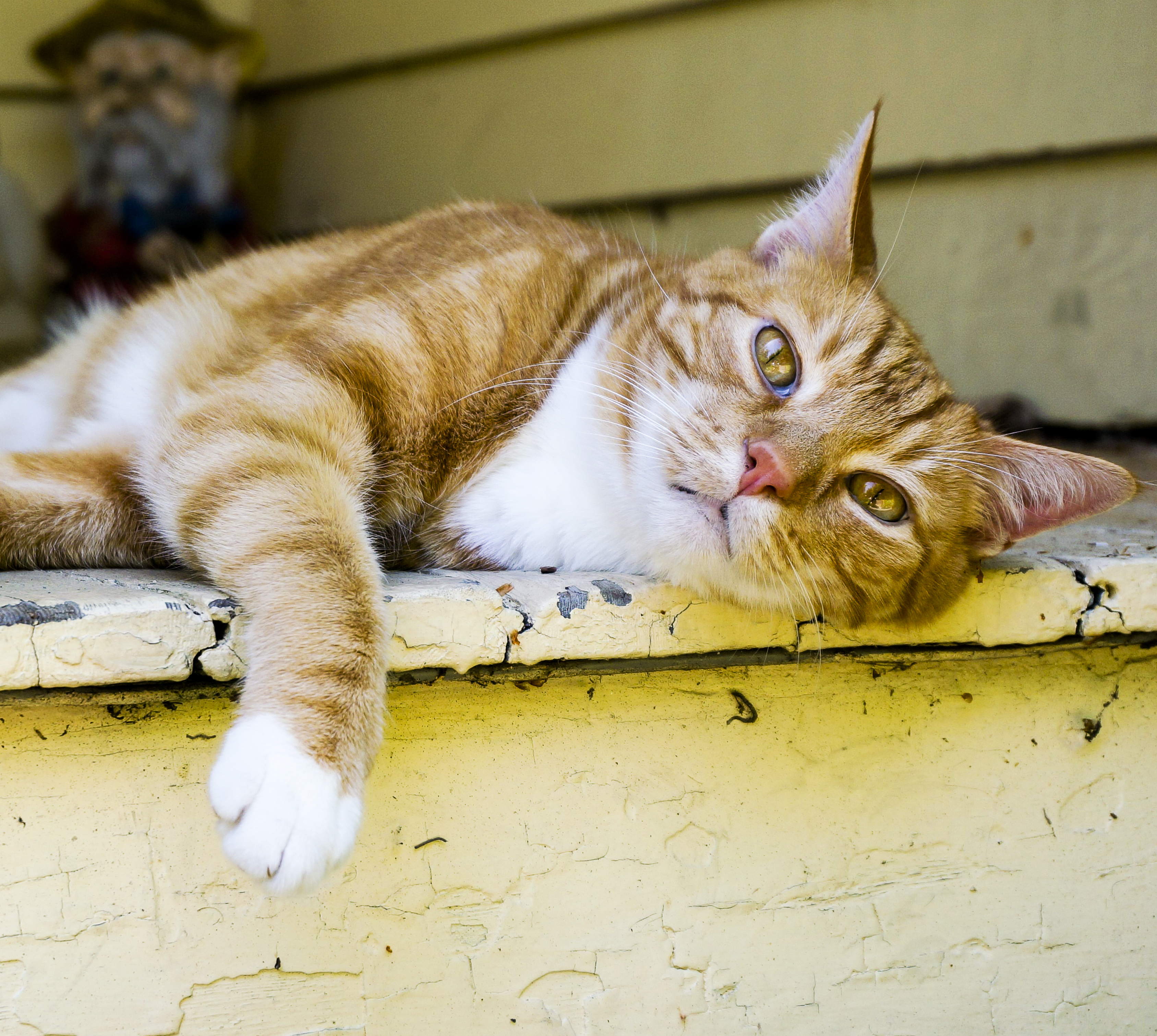
A handful of employees leaped at the idea, and the Cats of Microsoft (Mcats) group was off and running.
Right away, people began posting about their cat quandaries and exchanging videos and funny pictures—a honey-faced tabby curled under the bed covers, a mischievous ebony tail poking out from a hiding spot. After a couple of years, more employees heard about the group through an internal story, and membership soared to 3,000 people.
While some members are very active, a lot of them are lurkers, said Bunch, who works in customer service and support. “Well, I don’t love the word lurker,” she corrected. “They’re the barn cats. The more feral ones. I serve as a mama cat. Once in a while, people might disagree about what to do in a situation—someone will say, ‘Don’t you want to give it another try?’ when someone posts about rehoming due to allergies. And I’ll jump in and say ‘no, no, let’s keep it nice.’ Sometimes people get a little gritty.”
Just like in the cat kingdom.
Sometimes, Bunch says, members who have been on the alias for years will reach out for the first time because their cat is really sick, needs shots, or has some other health concern they need advice about. Undoubtedly, Bunch says, “someone has an Excel spreadsheet for that.”
Not just like in the cat kingdom.
Adoption, divorce, cross-country or international moves, job changes, people who are sick or who die—the group has fielded all types of crises. Right away, Bunch says, members unite to ask “what about the cat?” and to find ways to help. Members have watched, fed, and rehomed one another’s cats, picked up stranded cats when owners were unexpectedly stuck, and found supplies and advice on a range of issues from finicky eaters to neuter nerves.
“This has become an important personal support network for people, not only with regard to pet loss but in many aspects of their lives,” said Easterbrook, who has lost two pets of her own in the past 12 months. “This is a very powerful group of people; I have been able to be there for people, to help people through the downturns they’ve gone through in their lives. I never thought a cat group would lead to that.”
Because Mcats has not only an employee network but a Facebook group that includes alumni, sometimes people try to join erroneously, such as the college students looking for the MCAT—the Medical College Admission Test.
“And I’m like, no, meow meow,” Bunch said. “It does feel very cat-like. I’m like, ‘No, walk the other direction.'”
In addition to sharing cat memes and solving the mysteries of feline aloofness, the humans who belong to Mcats have also seen a benefit to their careers. “People do network. I’ve found professional work mentors,” Bunch said. “Somehow a conversation about Mr. Fluffy Pants turns into, ‘I have a project I need help with,’ and, ‘Oh I work in security, how about this.'”
All of this support, friendship, and networking seems like the cat’s meow. But it only scratches the surface of the impact Mcats has had.
Cats for good
About a year after Mcats formed, Bunch had the idea to launch a fundraiser by assembling a cat calendar with some of the images that members loved to share. At the time there was already a dog calendar at Microsoft, and, well, we all know how vexed cats get when they are upstaged by slobbery, over-eager canines.
(In all seriousness, the group is “definitely not opposed to helping dogs,” Easterbrook said. “But the research shows generally the worst outcome in needy areas is for cats.”)
A core group of volunteers, including Bunch, Easterbrook, and Kristi Minietta, invited employees to submit pictures, which often came paired with funny or poignant stories about the pets. The team decided to send whatever proceeds it made from selling the calendars to Forget Me Not Animal Shelter in Ferry County in rural Eastern Washington. The shelter had a run-down property, a single-wide mobile home for its animals, and no running water. “Volunteers brought in all the water in milk jugs, by hand,” Bunch said.
That first calendar year, the Mcats team thought it would make a few hundred dollars selling calendars full of sweet faces and winsome whiskers. It made $30,000.
This year, the calendar’s tenth anniversary, employees and alumni from all around the world participate. Last year, the team—which now includes employees Bunch, Easterbrook, Emily Hoffman, and Alex Sutton—received photo submissions from about 450 people.
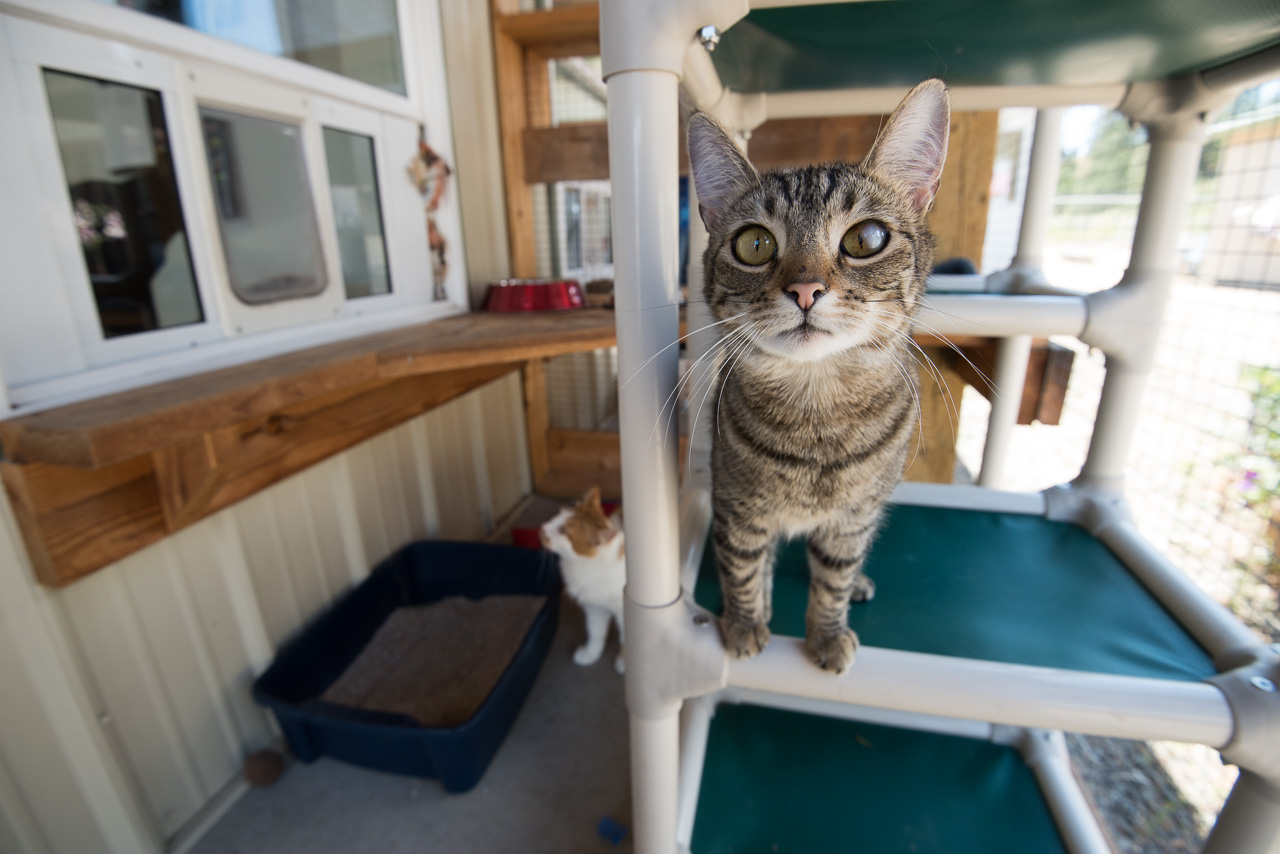
Cat of the Month snapshots are chosen anonymously by the employees of Forget Me Not; people can buy daily spots for the pictures that they feel best highlight their furry friend’s cattitude. All the submissions are taken into the light room to be color adjusted, cropped, and printed. After the year’s final images are selected, the calendars—the team now produces two 365-image calendars—are designed, produced, and distributed by the team. It’s a massive volunteer undertaking.
“I’m viewed as the very strange lady who last year showed up with a flash drive and printed 1,243 photos of cats at Costco. Someone probably wanted to ask, ‘Do you need to talk to someone?'” joked Easterbrook.
But it’s worth it. The project’s reach helps employees forge “that connection to people who are in different areas,” she said. Last year, the calendars raised $90,000 for the shelter. The funds raised through Microsoft’s employee giving program and by alumni, interns, and others who participate—more than half a million dollars in total over the years —have allowed Forget Me Not to build a full-service facility that includes a medical center, an adoption wing, and a trap-neuter-return program and have helped dramatically reshape animal care and rescue efforts in Ferry County. Microsoft’s employee giving program, which matches employees’ cash donations and pays nonprofits $25 for each hour an employee volunteers, raised more than $142 million in 2016 alone.
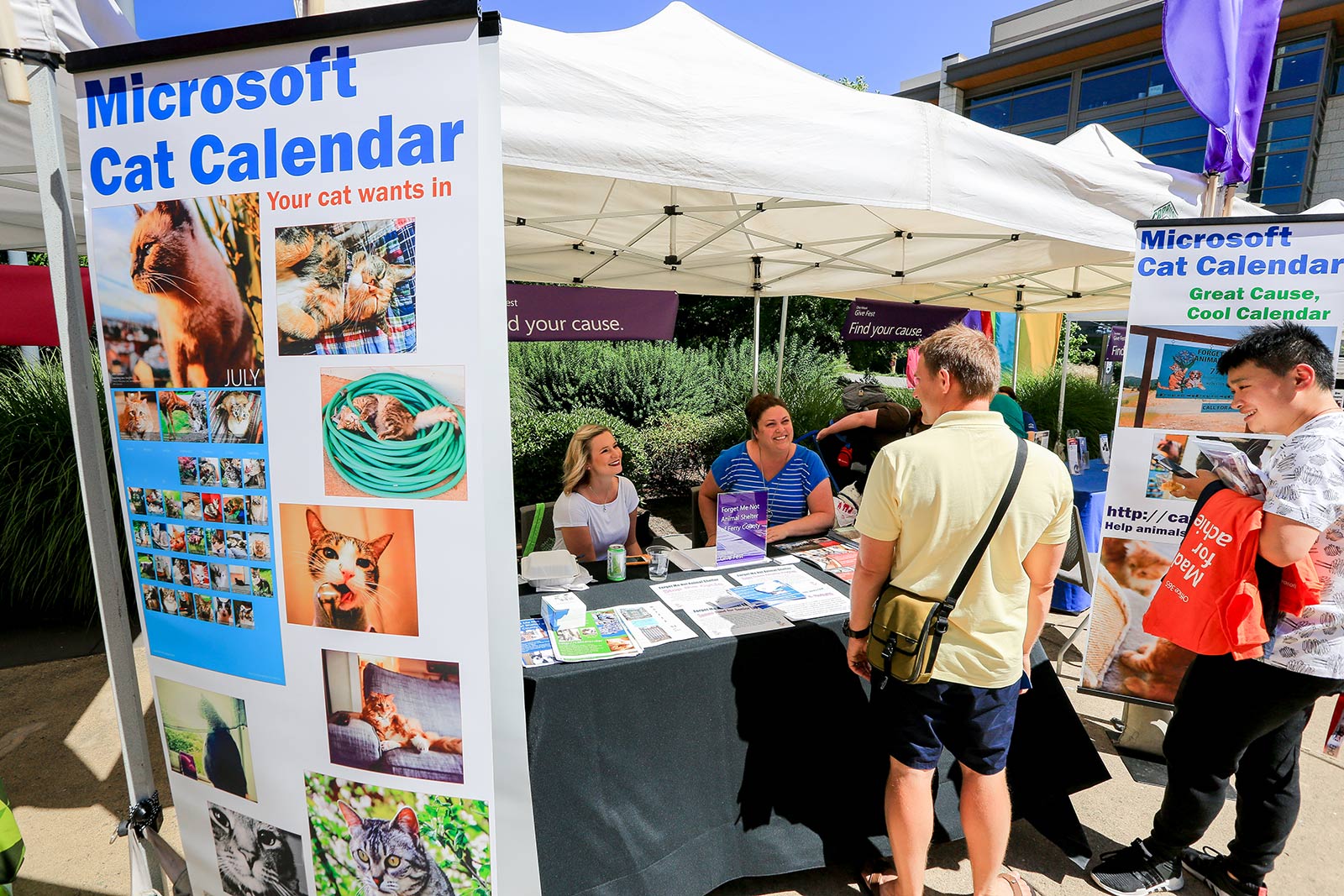
Every summer some members of Mcats travel to the shelter to see the impact, and every year the leadership team queries calendar participants about what their priorities are for the project, Easterbrook said.
Other teams at Microsoft and even from other companies have reached out to Mcats for guidance on how to launch their own successful giving projects. The team—cat whisperers that they are—always shares its learnings.
“It’s a transformation, from not knowing what you are doing to being a mentor for people,” Easterbrook said. “It’s very powerful.”
Time for kitten around
While some members are in the throes of the annual calendar craze now, Mcats will eventually settle back into the rhythm of the rest of the year: sharing tips, telling jokes, looking for their kind in the hallways, and trading funny stories—some of which will surely live on in hisstory or for at least for nine lives.
Like the one where someone’s cat managed to walk across a computer during a meeting, start Excel, write a formula, and run it, Bunch said.
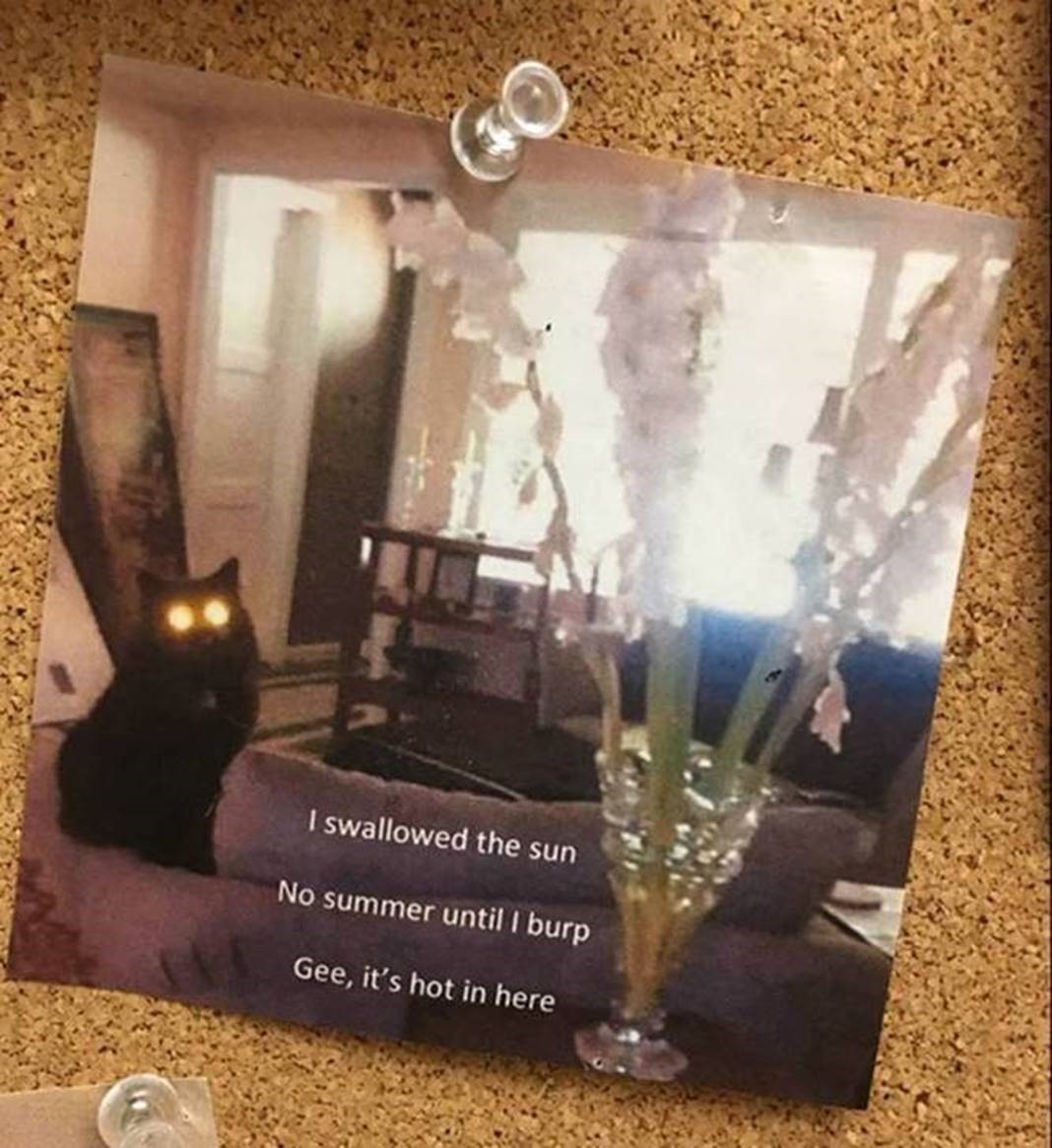
“It’s that comic relief that’s really hard to find when you’re in a world where, between computers and phones, everyone always wants something from you.”
And while cats are notorious loners, the Mcats humans will continue making friends. Like Bunch and Rachael Heade, who works on corporate data and document retention policy and compliance, who bonded over having black cats and joked that theirs were in love. Sadly, Heade’s cat, Lewis, the subject of a much-loved group haiku meme and nicknamed “Defender of the Realm” for his mouse-hunting prowess, died unexpectedly this summer.
“For 10 years I’ve been able to give my condolences to so many people who lost kitties, and then, it was my turn. It was very touching and very comforting. People remembered things about Lewis, a picture of his tail, whatever it was. It’s a sense of community,” she said.
And a conduit to perspective. “Microsoft can sometimes be a high-pressure, fairly serious place. I have found on days when it’s just like—argh—I go to the cat alias, and there’s always something that reminds me that we are all actually very human; we all have something that we love outside of work,” Heade said.
Ironically, Bunch’s black cat, Scotty, recently had to have her leg amputated—the same operation that could have saved Peter during the emergency that led to Mcats’ formation.
When Scotty had surgery, Mcats sent gift baskets replete with jingly toys and catnip. And despite the curious looks from the customs officials, Heade even brought Bunch a special present from her trip to Germany: a little back scratching post for Scotty.

